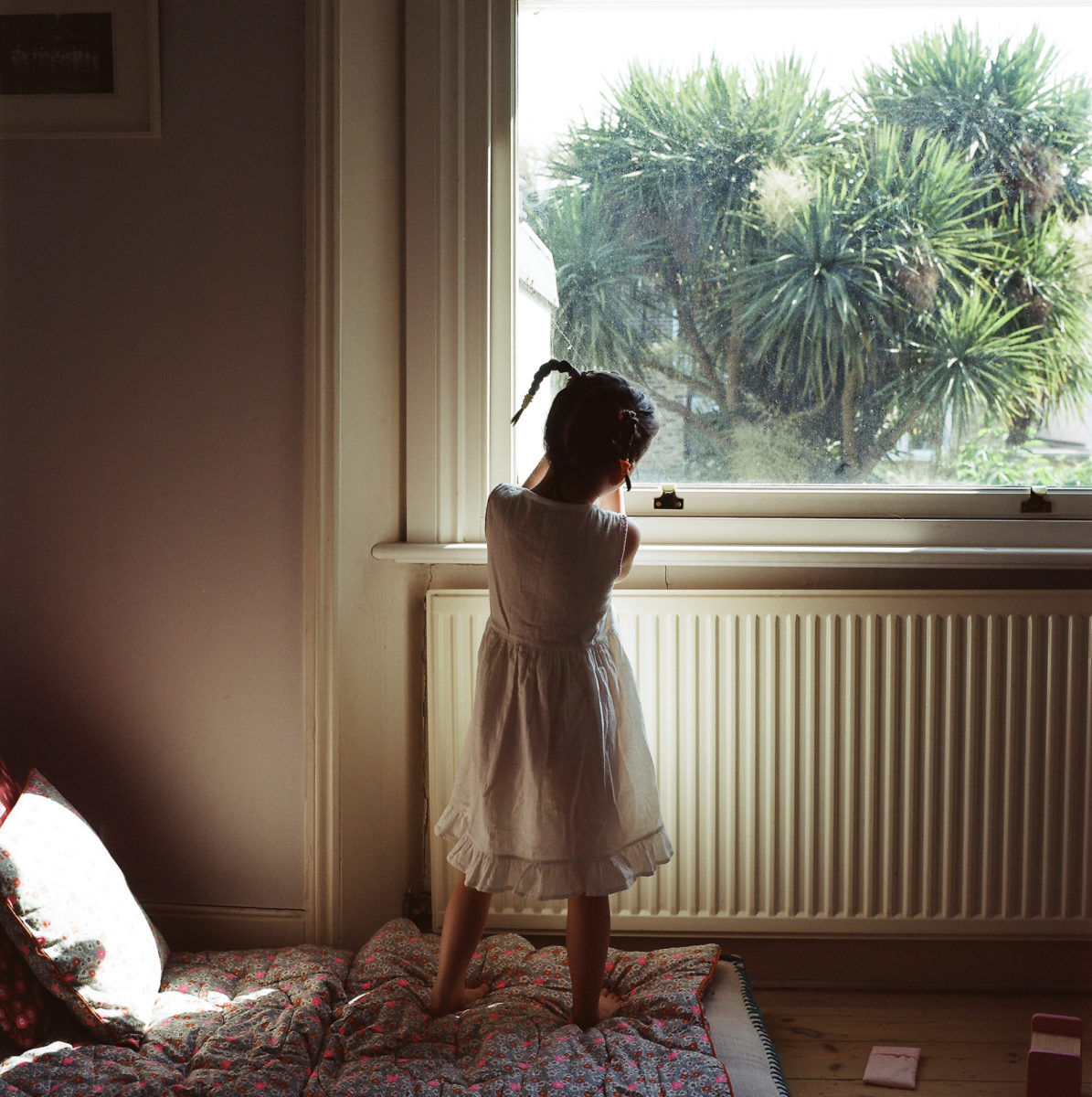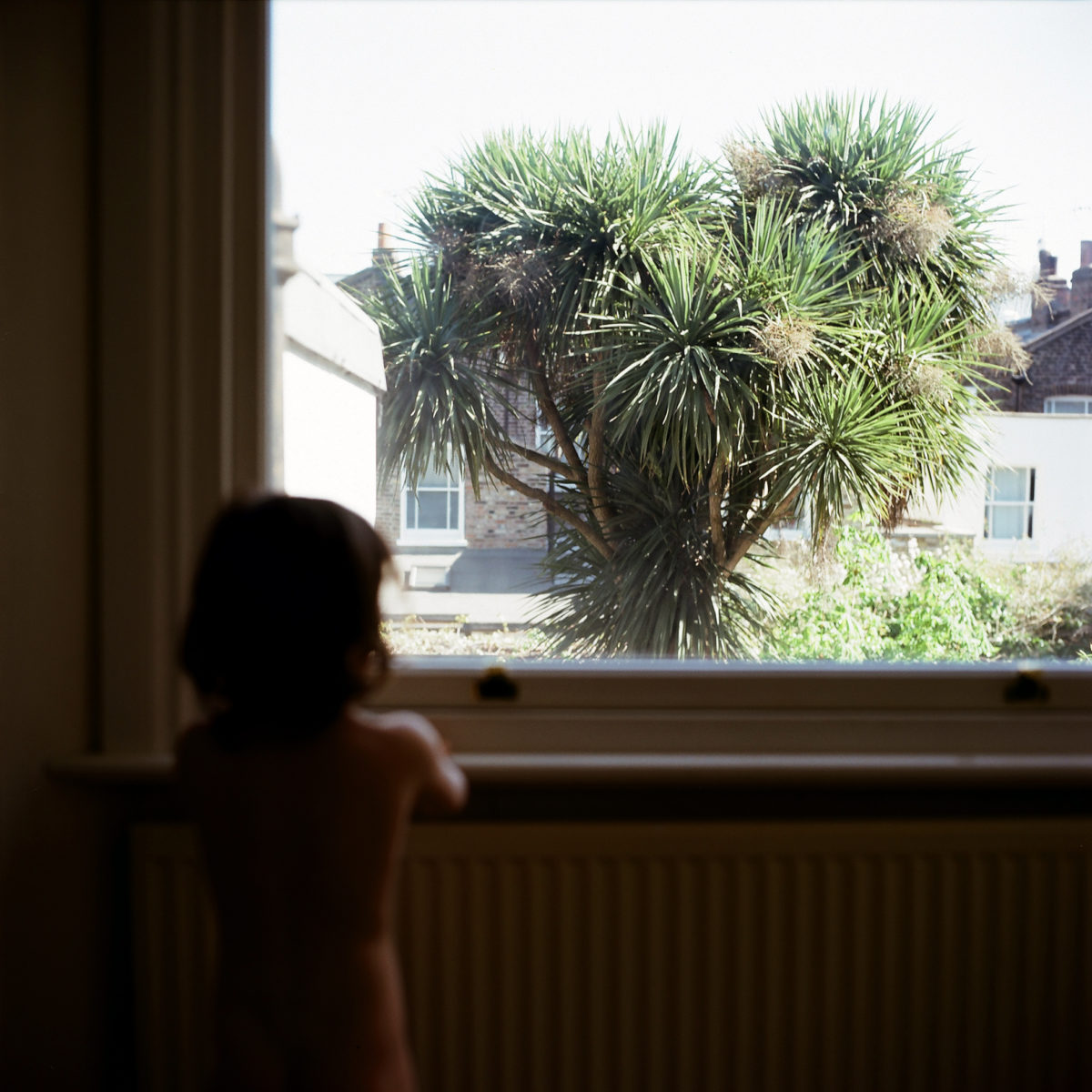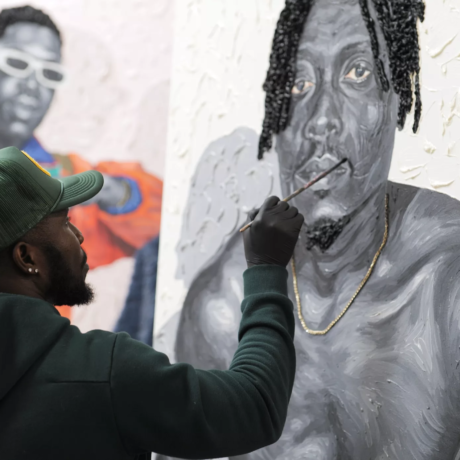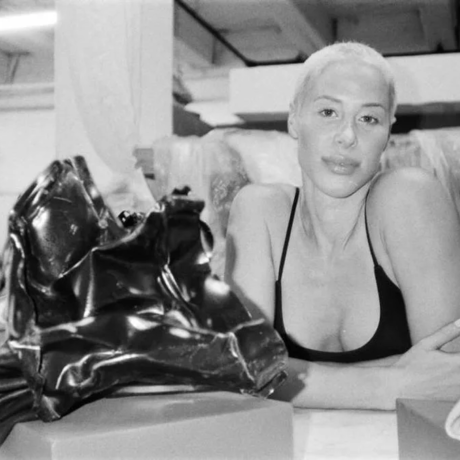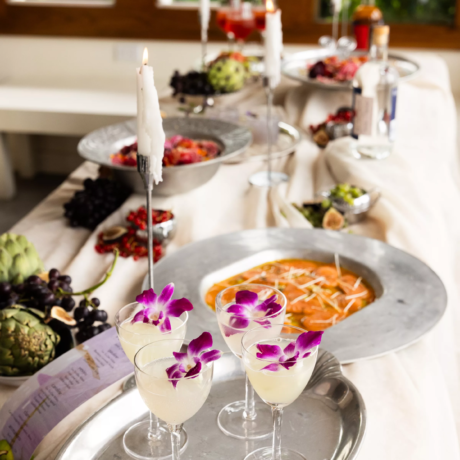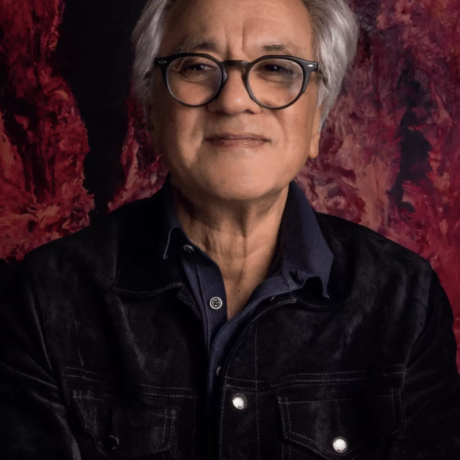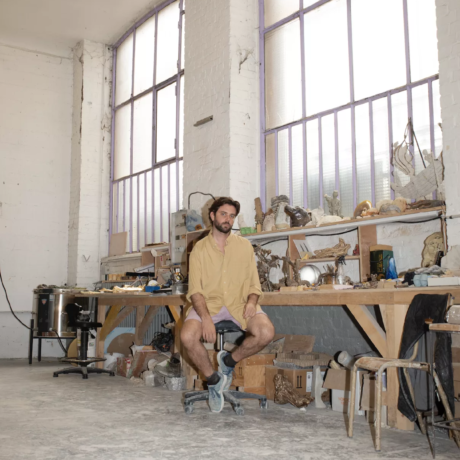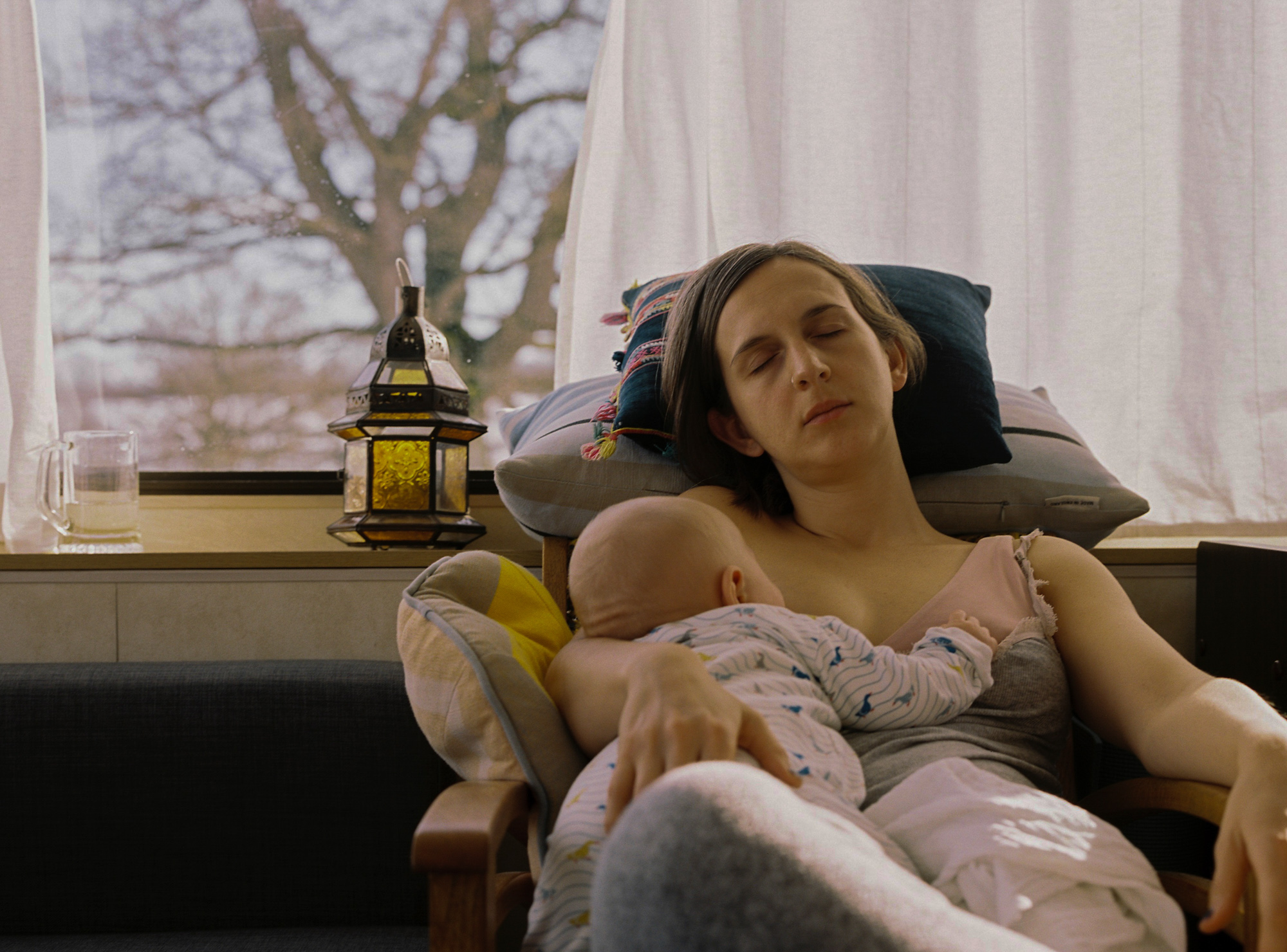
My neighbourhood is full of shadows. They’re recognisable by the same familiar traits: glassy-eyed, hair knotted, coat shoulders’ stained with the remnants of some snack offered as a bribe that backfired. They tread, they plod, they go on shuffling their scuffed shoes down the street. They drag mini scooters and small bikes behind them; a carnival of helmets and wrappers and twigs poke out from their pockets. These figures of pathos, people formerly known as parents, are, at this point in the pandemic, mere shells resembling human beings.
For so many, being a parent isn’t how you expected it to be. But the pandemic dealt parents a double blow. I remember reading Naomi Wood (curator of @picturingparenthood and photographer) on her experiences of early motherhood, after giving birth to her son in 2018. “I thought it would feel magical, but it doesn’t.” Wood decided to do what many artists would and make work about that experience—the truth of it—in a photographic series titled I Wake to Listen, a line drawn from Sylvia Plath’s own ode to early motherhood, Morning Song.
The series captures Wood’s isolation as a mother (they were living in a caravan in Somerset) through the humdrum details; a tap overflowing over a bowl for washing up; tiny clothes heaped up; bedsheets; crumbs; heavy-lidded eyes. The world is portrayed inside this loving yet stuffy cocoon. Seasons blur imperceptibly; it’s only through the growing baby—from his umbilical cord still visible, to sitting up in a high chair, to starting solid food—that we notice the time passing.“It’s hard to share these images.” Wood writes. “I don’t like how I look in them, I don’t want my son to see this version of his mother. But I am so tired of the standard parents are still expected to live up to.”
I too shuffle among these parents who are as exhausted by the high standards as by the job itself. The third lockdown, after a Christmas in tatters, has had me teetering on the brink. In lockdown one, I had an exuberant two-year-old and a sleepy newborn; in lockdown three I have a frustrated three-year-old and a very active 11-month-old, who are both climbing the walls at home, and occasionally taking shits in the fireplace (true story). Most days end with screaming into a pillow. Wood’s prescient pictures steel me. “Each generation of new parents has their own battles to plough through alongside raising their children,” she remarks.
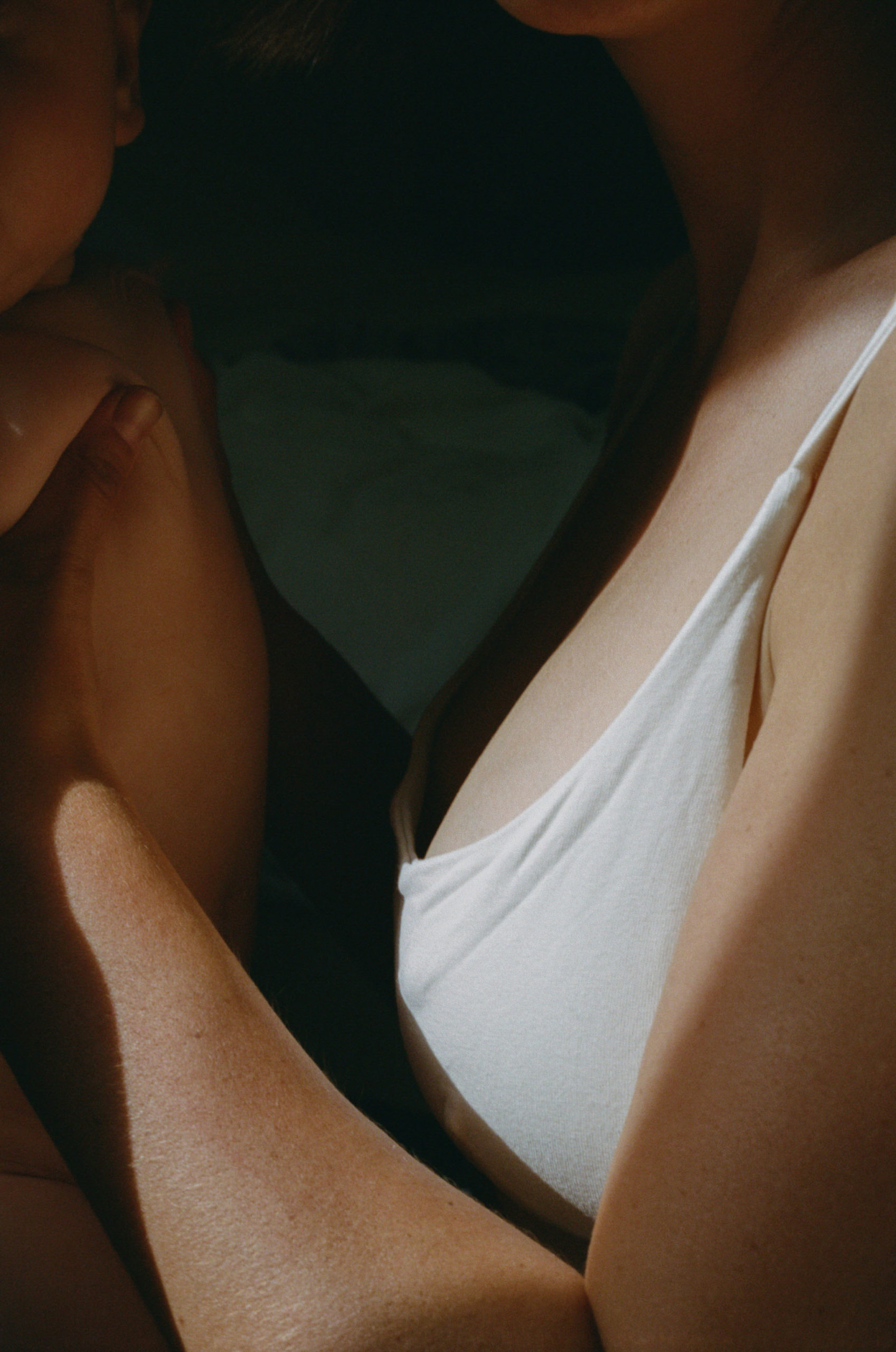
Parenting has shifted substantially during the pandemic in many ways, but it has also become a political issue. Of course, for many of us, it always was. On International Women’s Day the Guardian published an article revealing results of a Mumsnet survey that shows exactly how women with children are being impacted—dubbed the “motherhood penalty”. Mumsnet founder Justine Roberts commented that the exclusive poll paints a “depressing picture of how gender inequality has been exacerbated during the pandemic”. Women have been more likely to be furloughed, to lose their jobs, and to reduce their hours in order to homeschool children over the last year; the survey found 70 percent of women with male partners have been doing the majority of the homeschooling.
“For so many, being a parent isn’t how you expected it to be. But the pandemic dealt parents a double blow”
Again, this isn’t surprising to many. Most mothers, whatever gender they or their partner identify as, experience some kind of inequality after having children, but the pandemic has put this in plain, public view. It was the ripe moment for the UK government to introduce their staggeringly sexist ad for their ‘Stay Home, Save Lives’ campaign this January, which depicted four women in different homes doing the housework and homeschooling while the only male figure sat on the sofa. Obviously, the ad was met with incredulity and fury online and was ultimately withdrawn, but it arguably only affirmed in a cheap graphic what a lot of us find to be reality of the division of labour home. Now that everyone has been faced with this flagrant truth, with the economy and infrastructure of this country dependent on it, parenting labour and what it constitutes is at last on the political agenda.
View this post on Instagram
What we’ve glimpsed in the pandemic is the world without the patriarchy: a world when ‘professional’ doesn’t have to mean ‘childless’; a world where the intrusion of the chaos and mess of kids is welcomed, not frowned upon. The regime of the 9 to 5 day, another structure designed by and for men to prosper, has also been disbanded during the year of working from home, in favour of flexible working. In February the Minister for Women and Equalities, MP Elizabeth Truss, called for flexible working practices to be normalised—a major statement that many have lobbied for over a number of years. “The shift for many people to work from home during the pandemic has changed mindsets and now is a chance to seize the opportunity of making flexible working the norm,” Truss writes in a press statement released and published on the government’s website. Yet despite this, the same Mumsnet survey found women fearing a return to the kind of inequality suffered by mothers in the 1970s.
Before the pandemic, I had come to accept that my career in the art world would not be compatible with the way the art world operates: I wouldn’t be able to attend events abroad, or late-night openings, where all the important stuff invariably seems to happen. There are many spaces, many of which I’ve written about previously in this column, where I’ve felt unwelcome and unwanted when I have brought my children. I resigned myself to the fact my career would lag behind, like so many mothers in so many industries.
A talk with Rana Begum, Cally Spooner, Fiona Bradley and Laura Smith chaired by Hettie Judah and organised by Freelands Foundation earlier this month, How to Not Exclude Artist Mothers (which ironically, I couldn’t attend since it ran at the time small children have to be fed and ready for bed), resonates beyond only artist mothers—and should be extended to all of us working in this field. A widely shared set of guidelines for institutions and residency programs that has circulated from the talk is only the beginning, outlining how to accommodate and allow space for parents, to think about it in terms that range from being breastfeeding friendly to making allowances and provisions for childcare. It’s astonishing that these conversations are only happening at this level now.
“What we’ve glimpsed in the pandemic is the world without the patriarchy: a world when ‘professional’ doesn’t have to mean ‘childless’”
These guidelines certainly resonated with me, thinking of the many times I have gone to extremes to get things done. Last year I chose not to mention to an editor that my manuscript deadline was the same as my due date, in case I lost the commission. And of course, my baby was born three weeks early. Five days postpartum, back in the hospital with my baby, I didn’t tell another editor that I was writing a commission from my hospital bed with a jaundiced newborn undergoing phototherapy next to me. I was too afraid to explain the situation; I felt that my fate as a freelancer would be sealed if I was labeled ‘unavailable’.
Whether such conversations will be fleeting and fugitive, or whether they will continue to happen mostly among mothers after the pandemic, remains to be seen. But right now mothers are being heard by wider audiences than ever before. It’s no surprise that the best work being done about parenting in the pandemic—the politics of it, the pain and the joy of it—is being done by mothers too. Motherhood isn’t ‘timely’ or ‘more relevant’ as a subject; it is timeless and intellectually rich—but at least now it does have time to shine.
- Lydia Goldblatt, Fugue
“This year the entire world experienced a monumental metamorphosis. We have radically changed our ways of living. We have all borne witness to this change, reflected upon it, documented it. We have lived in our personal spheres, each small world becoming something bigger, a bit like the immersion of new motherhood,” as artist Lydia Goldblatt puts it.
In Goldblatt’s elegiac series of snapshots, Fugue, the cyclical phases of parenthood appear to synchronise with the rhythm of nature, just as everyone’s lives have had to over the past year. Goldblatt’s images are associative, circular, and are pervaded by a sense of uneasy restlessness—that atmosphere of being cooped-up and claustrophobic, but also afraid. Goldblatt’s mother passed away just before the first lockdown; by mirroring “the non-linear evergreen of a three-year-old’s consciousness, present in every tense”, mortality is subdued below the surface, absent from a young child’s way of viewing the world—but not our perspective as adults. The undercurrent to these images is highly charged, as Goldblatt moves between formal compositions and visual metaphors. She locates the political in the personal, the fragile negotiation of the mother between ourselves and our family, of how to protect and preserve a child’s innocence while fighting these silent, daily domestic struggles, dealt with mostly on our own.
My son turns one next week; he was born on the first day of Spring and a day before the first lockdown began. On Mother’s Day last year, we were lying in a hospital bed, blissfully unaware of what lay ahead. It isn’t the first year I would have chosen for him; time dissipates. Things seem to move forward, and then they move much further back than we ever imagined. But as every parent quickly understands, everything is a passing phase.
